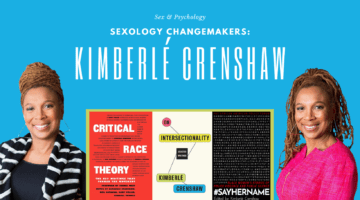Sex Question Friday: What Is A Sexologist And How Do I Become One?
December 20, 2013 by Justin Lehmiller

Every Friday on the blog, I answer people’s questions about sex, love, and relationships. This week’s question comes from a reader who is interested in becoming a sexologist.
I have great interest in social psychology, especially about human sexuality. Therefore, I am interested in becoming a sexologist. However, there isn’t much information regarding the path of study to becoming a sexologist. Is there is any difference between a sexologist and social psychologist? Do I need some kind of specific qualification to become one?
Thanks for submitting this great question! As a starting point, let’s throw a few definitions out there. First, sexology is the scientific study of sex and sexuality, and the scientists who contribute to our knowledge in this field are known as sexologists. Sexologists are an incredibly diverse group of people who come from many different scientific backgrounds. Thus, the vast majority of sexologists did not get degrees in sexology per se, but rather were trained to study sex within another discipline at the graduate level (e.g., medicine, psychology, anthropology, sociology, etc.). Sexologists generally have Master’s or doctoral degree, or some other type of advanced professional degree. While there are some training and certification programs available in sexology specifically, these are not absolutely essential to becoming a sexologist. Sexology consists of such an interdisciplinary group of researchers because sex is a very complex phenomenon that requires us to consider biological, psychological, and social factors. It is only by blending the information gained from all variety of perspectives that we can come to a complete understanding of human sexuality.
In contrast, social psychology is the scientific study of how social environments influence people’s thoughts, feelings, and behaviors. Social psychologists get their training specifically in this field. Some of them (like me) end up studying sex and sexuality, but most do not because sex is just one of many topics that may be of interest to social psychologists. For example, social psychologists may also study things such as stereotyping and prejudice, helping behavior, persuasion, political attitudes, and so forth.
What this means is that a social psychologist can become a sexologist, but being a sexologist does not require that you having training in social psychology. The primary question you need to ask yourself is this: What aspects of sex are you most interested in researching? This will help you to decide the specific field of study that you should enter. For instance, if you are primarily interested in the biological bases of sexual behavior (e.g., hormones, brain chemistry), then you might consider pursuing a degree in neuroscience or medicine. Alternatively, if you are interested in studying STIs and safer-sex practices, you might consider a degree in public health. Or, if you’re interested in studying social influences on sexual behavior or the impact of culture and society on sexual attitudes, you might consider a degree in social psychology, sociology, or anthropology.
In short, there isn’t just one way to become a sexologist. The path begins by clarifying your interests, and then looking for a degree program and mentor that can provide you with the tools you need to conduct scientific research in that area. Best of luck!
For previous editions of Sex Question Friday, click here.
Want to learn more about Sex and Psychology ? Click here for previous articles or follow the blog on Facebook (facebook.com/psychologyofsex), Twitter (@JustinLehmiller), or Reddit (reddit.com/r/psychologyofsex) to receive updates. You can also follow Dr. Lehmiller on YouTube and Instagram.
Image Source: 123rf
You Might Also Like:

Dr. Justin Lehmiller
Founder & Owner of Sex and PsychologyDr. Justin Lehmiller is a social psychologist and Research Fellow at The Kinsey Institute. He runs the Sex and Psychology blog and podcast and is author of the popular book Tell Me What You Want. Dr. Lehmiller is an award-winning educator, and a prolific researcher who has published more than 50 academic works.
Read full bio >

